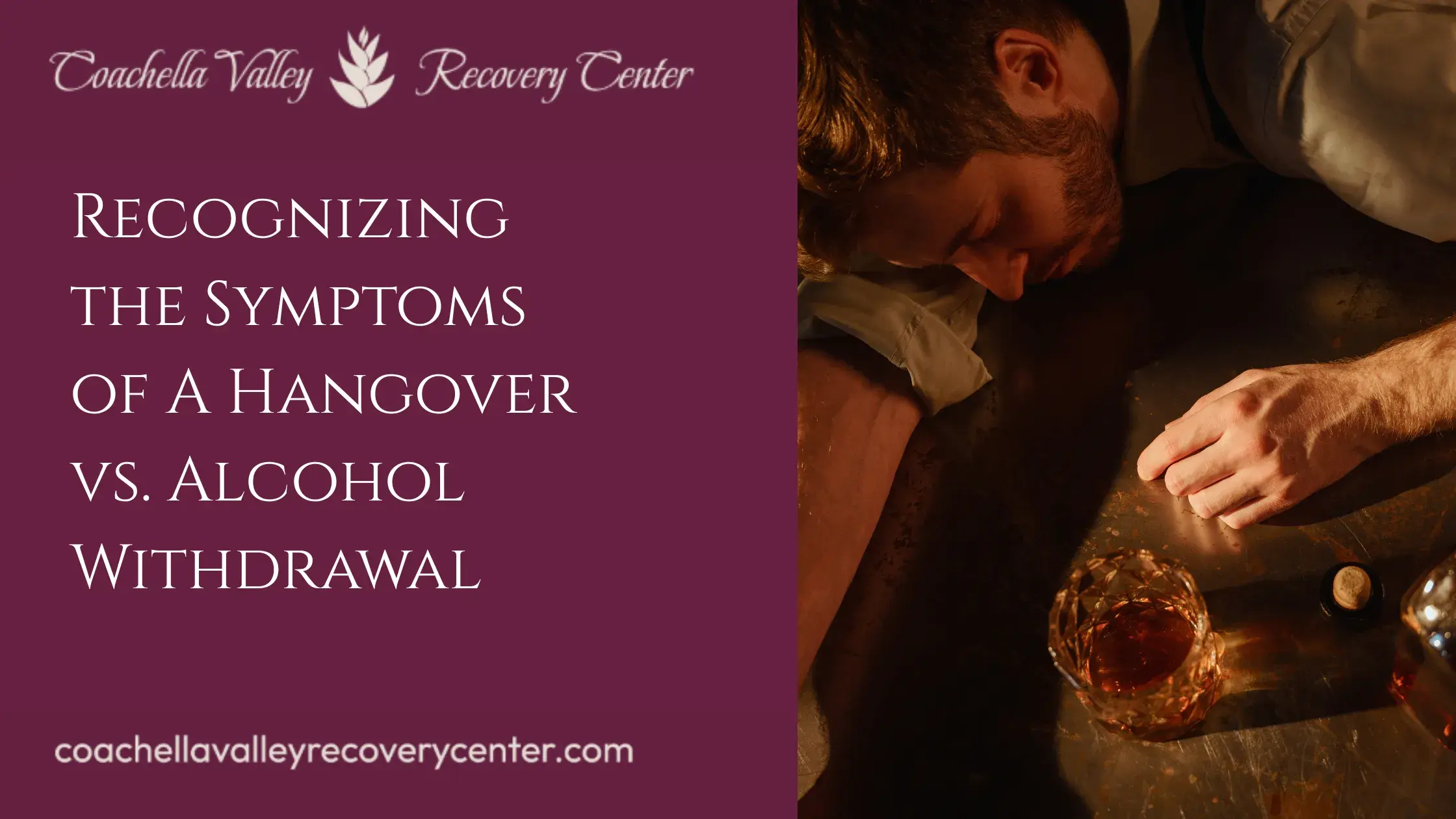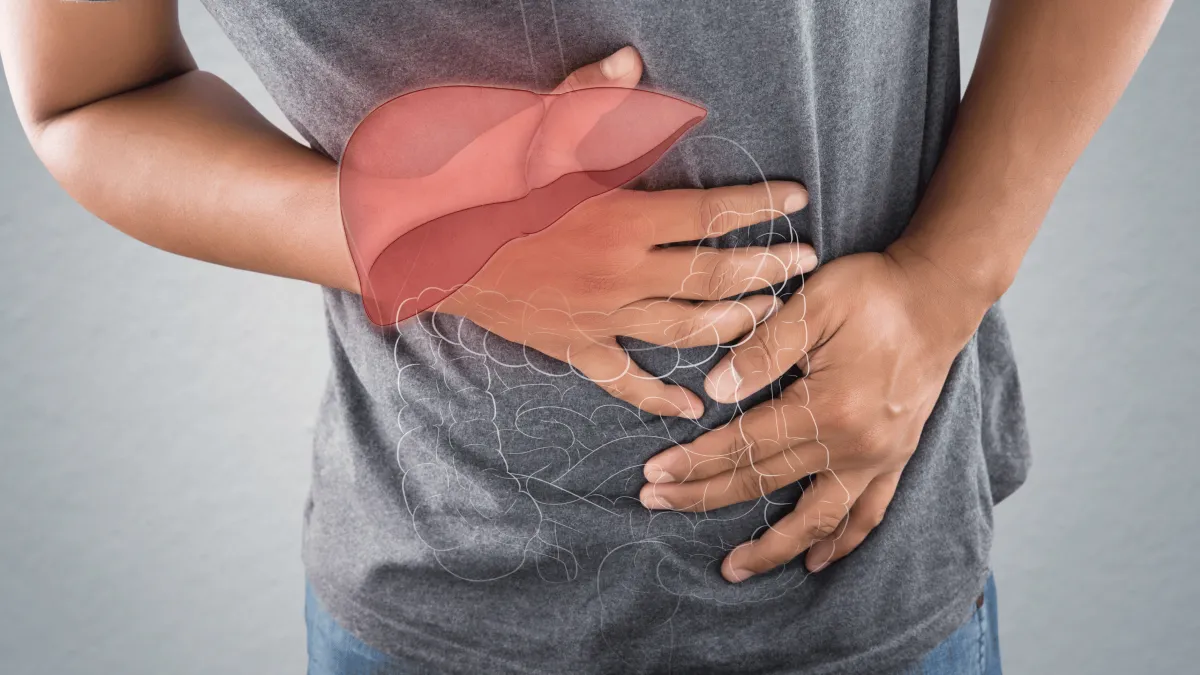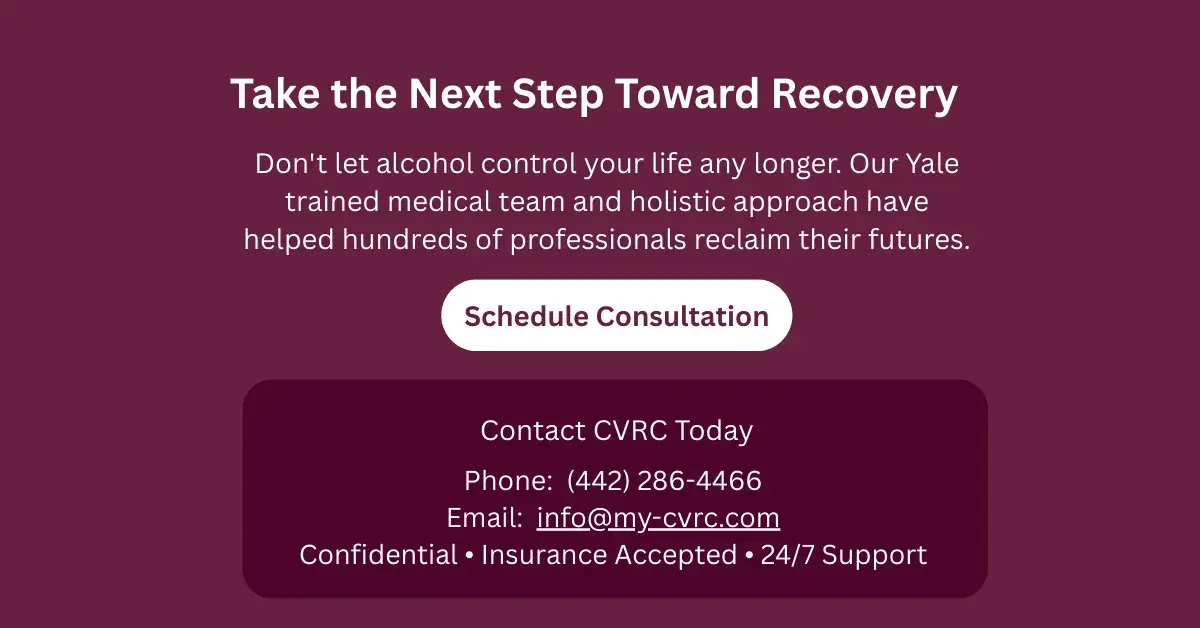Recognizing the Symptoms of a Hangover vs. Alcohol Withdrawal
Identifying when alcohol symptoms indicate a health risk

Identifying when alcohol symptoms indicate a health risk

When people ask, what are the symptoms of a hangover, they’re usually describing that unpleasant state the morning after drinking too much: a pounding headache, nausea, dry mouth, or just feeling “off.” While these symptoms are common, it’s important to understand the difference between a hangover which is uncomfortable but temporary and alcohol withdrawal, which can be dangerous and even life-threatening.
At Coachella Valley Recovery Center, we work with individuals and families to recognize these differences. Knowing when symptoms cross the line from “normal” hangover discomfort into something more serious is crucial. Understanding both conditions also helps families support loved ones who may be struggling with more than just occasional drinking.
Also Read:

A hangover is the body’s reaction to drinking too much alcohol. Scientists haven’t identified a single cause, but several processes happen at once:
Most hangovers fade within 24 hours, especially with hydration, proper rest, and food.
.webp)
For many people, hangovers aren’t just physical. Anxiety and guilt often accompany physical discomfort. This phenomenon sometimes called hangxiety occurs because alcohol disrupts brain chemicals like serotonin and GABA, leaving you feeling emotionally low the next day.
Emotional hangover symptoms may include:
While unpleasant, these feelings typically improve alongside the physical symptoms. If they become frequent or intense, however, it could signal deeper dependence.
Alcohol withdrawal is a different process. It happens when someone who drinks heavily or frequently stops suddenly. Because the brain and body adapt to functioning with alcohol, removing it throws the nervous system into overdrive.
Unlike hangovers, alcohol withdrawal symptoms can persist for several days or weeks and may require medical supervision. Attempting to detox alone at home can be risky, even fatal.
Recognizing the difference between hangovers and withdrawal is more than a matter of semantics; it can save lives. Many people dismiss repeated hangovers as a normal consequence of social drinking. But if someone is drinking often enough to experience near-constant hangovers, dependence may already be forming.
Loved ones should pay attention to patterns such as:
If these red flags appear, it’s time to ask whether the problem is moving beyond hangovers and into the territory of alcohol use disorder.

Even if withdrawal isn’t present, frequent hangovers can take a toll on long-term health. Over time, the body’s organs, especially the liver, heart, and brain bear the brunt of repeated alcohol exposure. Research shows that chronic drinking increases risks of:
In other words, frequent hangovers should be viewed as warning signs, not just temporary annoyances.
Most hangovers resolve naturally, but there are steps you can take to recover more comfortably:
If symptoms are severe, persistent, or interfere with daily life, it may no longer be a simple hangover. Warning signs that professional help is needed include:
At this point, safe, medically supervised treatment is essential.
At CVRC, we offer more than a temporary fix. Our approach is designed for individuals who need comprehensive, long-term support:
We understand the pressures professionals, veterans, and leaders face. That’s why our programs are built for high-functioning individuals who need discreet, judgment-free help.
A hangover might be unpleasant, but alcohol withdrawal is dangerous. Knowing the difference helps individuals and families recognize when professional treatment is necessary.
If you or a loved one are experiencing symptoms beyond a typical hangover, Coachella Valley Recovery Center provides the medically backed, personalized care needed to recover safely and build a stronger future.

How long does a hangover last?
Most hangovers last between 8–24 hours. If symptoms last longer or worsen, it may not be a hangover.
Can hangovers be prevented?
Limiting alcohol intake, staying hydrated, and eating before drinking can help reduce hangovers—but the only true prevention is avoiding alcohol.
How do I know if it’s withdrawal?
If symptoms occur daily, persist after multiple days without alcohol, or include seizures or hallucinations, seek medical help immediately.
Is alcohol withdrawal dangerous?
Yes. Severe withdrawal can be life-threatening and requires medical detox.
When should I seek professional help?
If you can’t stop drinking despite negative consequences, or if withdrawal symptoms appear, it’s time to consult a treatment center like CVRC.

Dr. David Deyhimy, with over 20 years of experience, is a board-certified physician in addiction medicine and anesthesiology based in Orange County.
Don’t hesitate to contact us today with any questions you may have about our program or if someone you know is struggling with addiction.